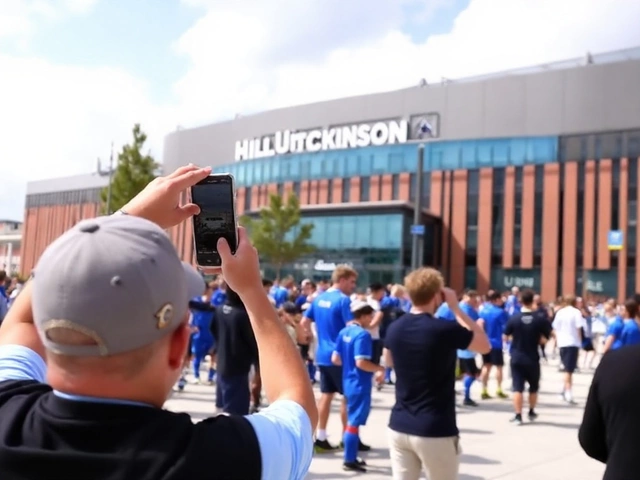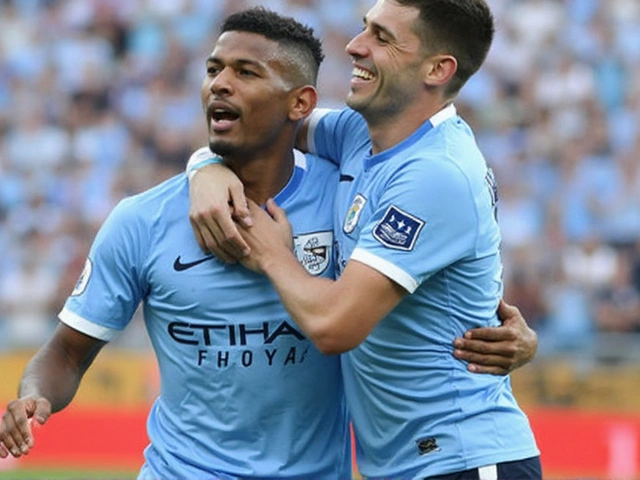Moyes' Squad Choices Under the Microscope
If you watched Everton’s 2-0 defeat to Manchester City, you probably sensed something was off from the get-go. The mood turned sour fast—not just because City were clinical, but because David Moyes made a puzzling call: he left out forward Chermiti from the squad completely. Remember, Moyes had hinted earlier in the week about giving Chermiti, a permanent signing, more time on the pitch. Yet when the lineup dropped, there was no sign of him. Fans took to social media, calling the move 'ridiculous' and 'strange,' especially as Moyes stuck three right-backs on the bench instead.
This wasn’t just a matter of team-sheet semantics. Everton’s play style under Moyes has relied heavily on bypassing intense pressing with direct long balls—it's not glamorous, but it has kept their heads above water more often than not this season. In fact, Everton top the league in long balls per match, averaging 26.4. That’s a clear indication the plan is simple: go over the top, get in behind, and create chaos, especially against high-pressing teams like Manchester City. Without Chermiti's physical presence and direct running, though, the game plan never gained traction. That left Everton’s already shaky attack toothless.
The Fallout: Fans Fume and Attacking Options Fall Flat
Chermiti isn’t just another squad player—he’s a permanent investment. On the other hand, loanee Armando Broja made the bench, adding to the confusion. Fans saw this as Moyes favoring temporary solutions over the club’s own assets. It’s a move that made sense only to Moyes and perhaps the medical team, but if Chermiti was fit enough for pre-game consideration, why drop him entirely in favor of stacking right-backs?
To compound matters, Everton’s bench looked ill-equipped to change the game when things started going south. Dwight McNeil, still recovering from injury, offered only flashes of his best. With limited attacking options, Moyes’ men were easy to contain. City, for all their flashy football, are sometimes vulnerable in transition—something Everton failed to exploit this time. Every time the ball went long, there was a sense that nobody in blue was going to get there first. It played right into City’s hands.
- Everton sits at the top of long-ball usage, but lacked the personnel to execute it properly.
- The lack of attacking intent meant City's backline barely broke a sweat.
- Frustration among the fan base is peaking, not only due to the result, but also because of what seemed like counter-intuitive management.
Moyes insisted after the match that the game was closer than the score suggests, but the narrow defeat felt self-inflicted. In these crunch moments, selection errors cost points—and sometimes survival. With Everton nervously glancing at the relegation zone, every decision counts. Moyes' gamble to leave out Chermiti and stockpile defenders may go down as one that made a tough season even tougher.









Write a comment